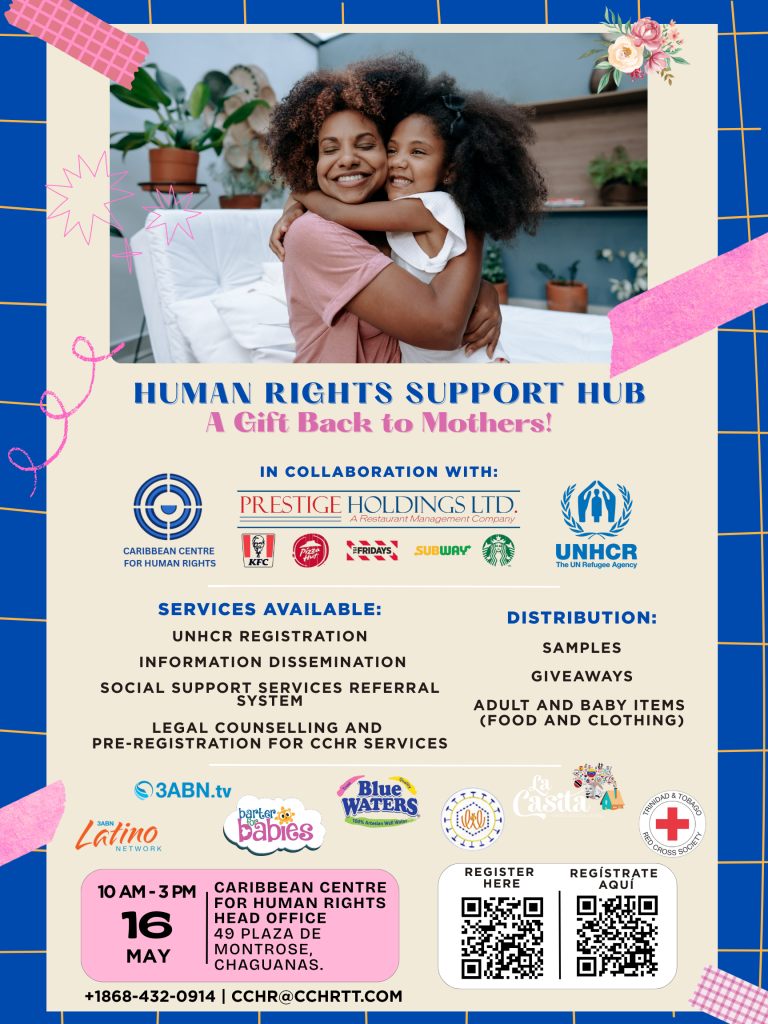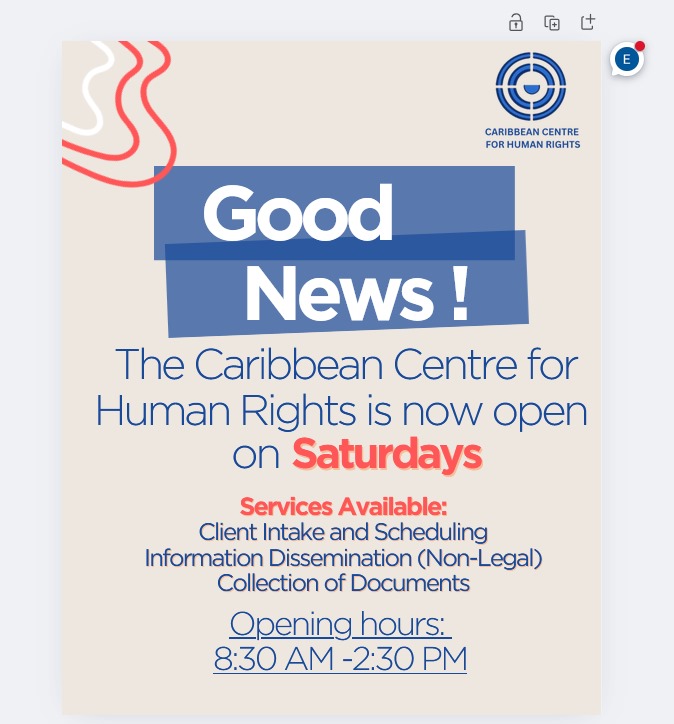The Caribbean Centre for Human Rights Support Hub
Posted: 7th May 2025
A Gift to Mothers- Friday May 16th 2025

END
The Caribbean Centre for Human Rights is now open on Saturdays!
Posted: April 28th 2025
The Caribbean Centre for Human Rights (CCHR) will now be open on Saturdays from 8:30am-2:30pm.

END
